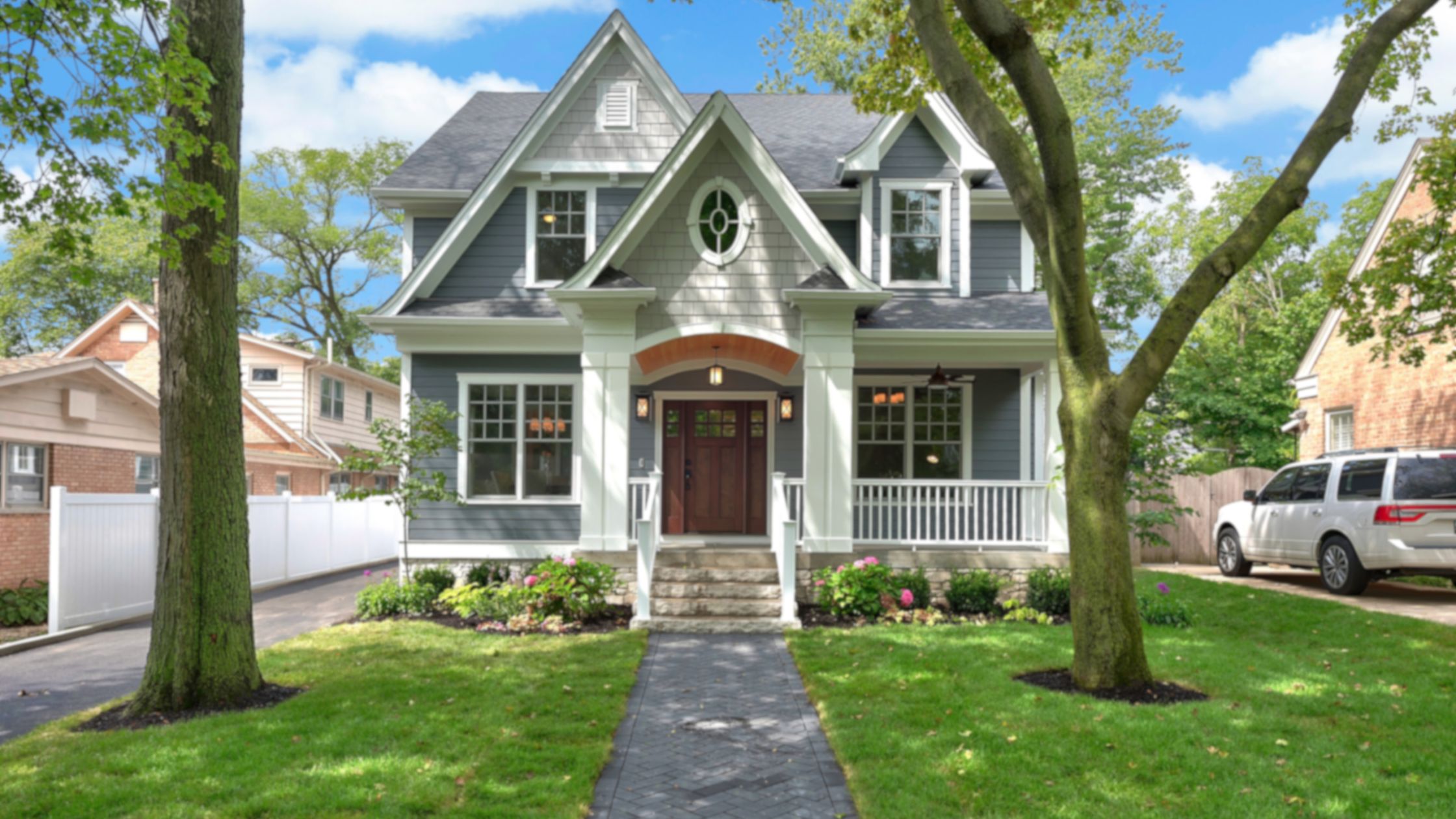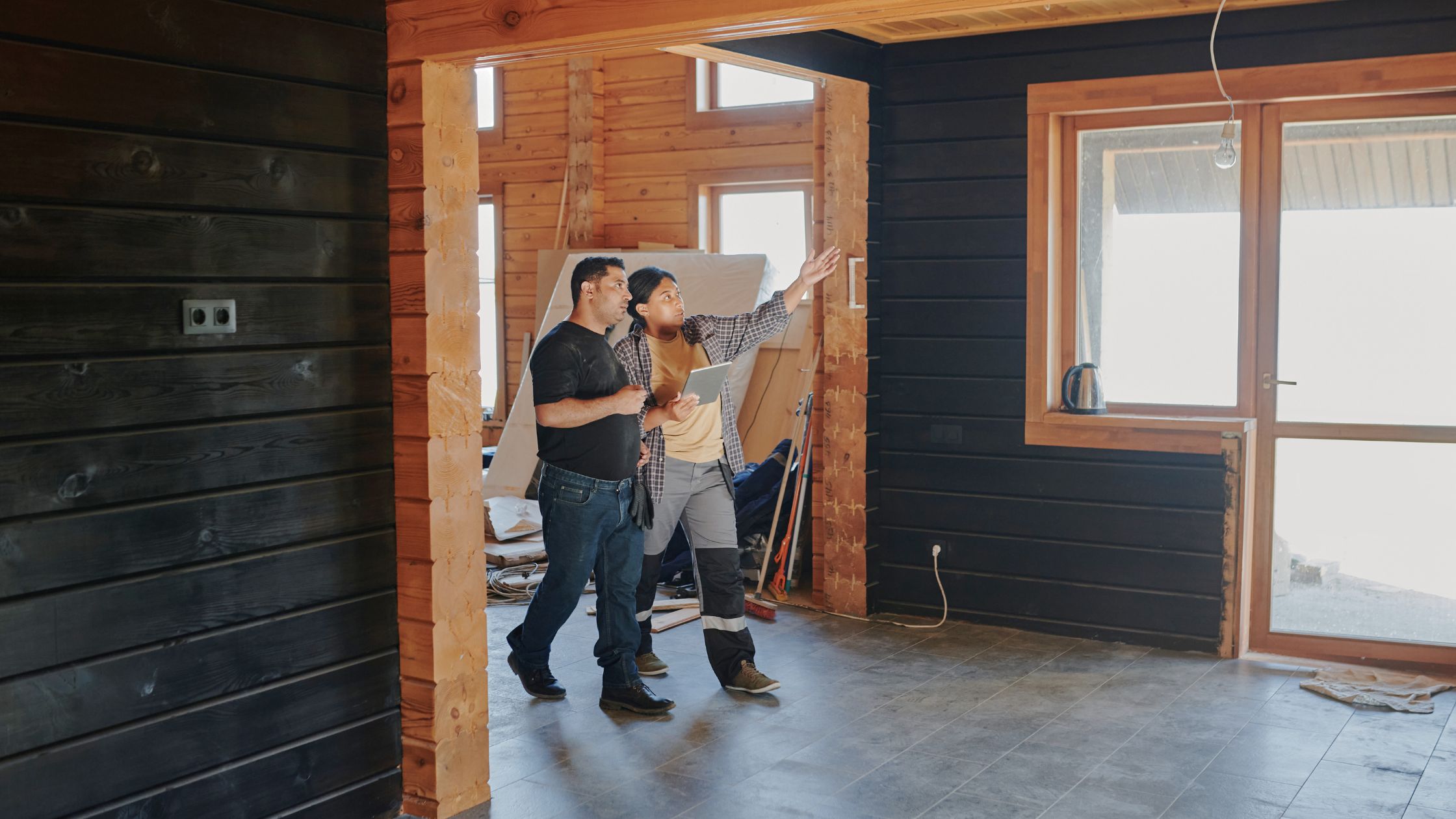The Ultimate Illinois Home Remodeling Guide: Everything You Need to Know Before You Start
Introduction
Home remodeling in Illinois has become very popular. Homeowners want to improve their living spaces with modern designs and practical upgrades. Whether you’re thinking about renovating your kitchen or updating your bathroom, these projects require careful planning and preparation to get the results you want.
This guide will provide you with all the information you need before starting your remodeling journey in Illinois.
1. Planning Your Remodel
Planning your home remodel carefully is crucial for success. Here are the key steps to follow:
1. Define the scope of your remodel
Start by determining what you want to achieve with your renovation. Are you looking to improve the appearance of your space or enhance its functionality? Having a clear plan in mind will help you stay focused throughout the project.
2. Identify specific areas in your home that need renovation
Take a close look at different parts of your house and decide which areas require remodeling. Commonly remodeled spaces include:
- Kitchens: These often involve updating cabinets, countertops, and appliances.
- Bathrooms: Upgrades may include new fixtures, tiling, and lighting.
- Living spaces: This can involve refurbishing floors or incorporating modern design elements.
It’s important to assess each area individually, considering both your current needs and future aspirations.
3. Set a realistic budget
A successful remodeling project relies on having a well-defined budget. Start by prioritizing the aspects of your remodel that matter most to you, as this will guide your financial planning. For example, if you’re considering a high-end bathroom renovation in Chicago, be aware that it could cost over $37,500.
When creating your budget:
- Research local pricing trends to understand average costs.
- Set aside an additional 10-15% as a contingency fund for unexpected expenses.
- Find a balance between quality and cost—while it’s tempting to cut corners, investing in good materials and skilled workmanship can lead to long-term benefits.
By following these steps—defining the scope of your remodel, identifying key areas for renovation, and establishing a realistic budget—you’ll be better prepared for transforming your home in Illinois.
2. Understanding Permits and Regulations
Before starting a remodeling project in Illinois, it’s important to understand the details of construction permits. These permits ensure that renovations follow local building codes and safety standards, protecting both the homeowner and the community. Projects without proper permits can result in legal issues, delays, and potentially unsafe living conditions.
Why Permits Are Necessary
- Safety Assurance: Permits verify that construction work follows safety regulations.
- Legal Compliance: Avoidance of fines or legal problems related to unauthorized work.
- Property Value: Properly permitted renovations positively impact a home’s resale value.
Role of the Illinois Department of Buildings
The Illinois Department of Buildings (DOB), especially in major cities like Chicago, is responsible for overseeing permit applications. This department ensures that all remodeling projects meet structural integrity and safety requirements. Homeowners usually need to submit detailed plans for approval before starting work.
Minor vs. Significant Alterations
Not all home improvements need permits. Knowing the difference between minor changes and significant alterations helps homeowners decide what to do next:
- Minor Changes: These may include cosmetic updates like painting or replacing fixtures, often qualifying for the Easy Permit Program. This program simplifies the permit process for small-scale projects.
- Significant Alterations: Structural changes, such as altering load-bearing walls or major plumbing and electrical upgrades, require thorough review and approval by the DOB. These projects need detailed submissions including architectural plans and may involve multiple inspections throughout the project lifecycle.
Understanding these differences is crucial for a smooth remodeling experience in Illinois. It reduces the risk of project delays or extra costs caused by not following regulations. By following these guidelines, homeowners can ensure their projects progress smoothly while maintaining safety and quality standards.
3. Choosing the Right Contractor
Choosing the right contractor is a crucial step in executing a successful home remodel. A qualified contractor not only understands your vision but also brings expertise and reliability to the project. Working with a contractor who understands your needs ensures that your ideas are brought to life without compromising on quality or safety.
Why Use Sweeten?
To make finding trustworthy professionals easier, using platforms like Sweeten can be extremely helpful. Sweeten is known for connecting homeowners with vetted general contractors who have positive reviews and proven track records. This network simplifies the search for reliable contractors by curating a list of top-notch professionals suited to various budgets and project requirements.
Tips for Communicating with Contractors
When talking to potential contractors, it’s important to be clear. Here are some tips to ensure effective communication:
- Define Your Vision: Clearly explain your goals and expectations for the remodel. Providing detailed descriptions, sketches, or inspiration boards can help convey your ideas.
- Establish a Budget: Discuss financial constraints and make sure that the contractor knows about budget limits from the beginning.
- Set Clear Timelines: Share any deadlines or specific timeframes for project completion to align schedules.
- Specify Materials and Finishes: If you have preferences for specific materials or finishes, let these be known early in discussions.
If you’re based in New York City, you might want to consider exploring options like those offered by general contractors in NYC who specialize in home remodeling projects.
Keeping open lines of communication throughout the remodeling process will reduce misunderstandings and foster a collaborative relationship with your contractor. By using resources like Sweeten and following these communication strategies, homeowners can confidently navigate their renovation journey as part of The Ultimate Illinois Home Remodeling Guide: Everything You Need to Know Before You Start.
4. The Remodeling Process Overview
Starting a home remodeling project involves going through several construction stages, each important for the success of the project. Knowing these stages helps ensure a smooth transition from planning to finishing.
1. Demolition Process
The remodeling journey often begins with demolition, where existing structures are dismantled to make way for new designs. This phase requires careful planning and execution to avoid unnecessary damage and ensure safety.
2. Installation Work
Following demolition, the focus shifts to installation work, which includes:
- Plumbing: Upgrading or rerouting plumbing systems demands precision and expertise. Licensed plumbers ensure that water lines are correctly installed, and drainage systems function efficiently.
- Electrical Tasks: Electrical installations require compliance with stringent safety standards. Tasks may involve rewiring, installing new outlets, or setting up lighting fixtures. Enlisting certified electricians guarantees adherence to local codes.
3. Inspections
Throughout these phases, scheduling inspections by city officials is imperative. These inspections ensure that each stage adheres to building codes and safety standards:
- Initial Inspection: Conducted post-demolition to assess groundwork.
- Midway Inspections: Focused on plumbing and electrical installations before closing walls.
- Final Inspection: Ensures all work meets regulatory requirements before project completion.
Incorporating these structured inspections helps identify any potential issues early, reducing the risk of costly reworks later.
Understanding these critical components of the remodeling process allows homeowners in Illinois not only to comply with regulations but also to maintain control over the quality and safety of their remodels. The journey from demolition through installation and inspection lays a solid foundation for moving forward with confidence in the subsequent phases of the project.
5. Tips for a Successful Remodel
Starting a home remodel requires effective project management strategies to ensure success. With careful planning and proactive measures, homeowners can smoothly handle potential challenges.
Planning Ahead and Setting Realistic Expectations
Starting a remodeling project with clear goals and expectations helps prevent unexpected surprises. Establishing a detailed plan that outlines all phases of the project is crucial. This includes timelines, budget constraints, and understanding the scope of work. Regularly revisiting these plans ensures alignment with your initial vision and accommodates any necessary adjustments.
Protecting Your Belongings During Construction
During renovations, safeguarding your possessions from dust and damage becomes essential. Consider these strategies:
- Cover furniture with plastic sheets or drop cloths.
- Seal off rooms not undergoing renovation using temporary barriers to contain dust.
- Relocate valuable items to storage units or unaffected areas of the house.
Employing these protective measures maintains the integrity of your belongings throughout the remodeling process.
Preparing for Temporary Living Arrangements
Extensive renovations often require temporary living solutions. Whether it’s finding accommodation with family, renting a short-term apartment, or setting up a makeshift living space within the home, planning these arrangements in advance reduces disruption. Consider factors such as proximity to the construction site, convenience, and comfort when deciding on alternative accommodations.
By following these successful remodeling tips, homeowners in Illinois can efficiently manage their projects while minimizing stress and protecting their homes during transformations.
Conclusion
Successfully remodeling your home in Illinois requires careful planning and informed choices. This guide is your comprehensive resource, covering essential topics like:
- Planning
- Budgeting
- Permits
- Contractor selection
- Process management
By understanding Illinois’ specific rules and best practices, homeowners can confidently navigate their remodeling journey. Here are some key takeaways:
- Set clear goals for your project.
- Understand your legal obligations as a homeowner.
- Choose qualified professionals to assist you.
With these strategies in place, you’ll be better equipped to achieve success in your home remodeling endeavors. Remember, effective communication with contractors is crucial for a smooth renovation process.
By following these guidelines, you can expect:
- A more efficient construction phase
- A satisfying renovation experience
- Increased value and functionality of your home
Transforming your living space into the home of your dreams is within reach—so go ahead and start planning!
news via inbox
Nulla turp dis cursus. Integer liberos euismod pretium faucibua








